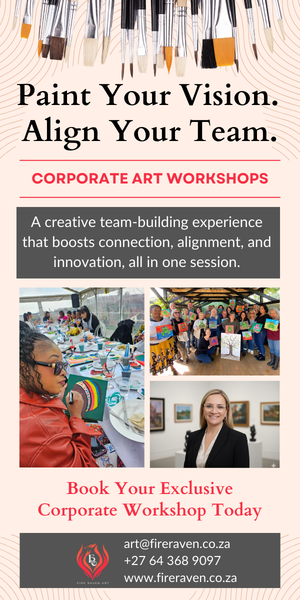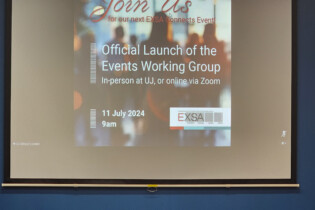John Fisher retells some industry myths to guide us all towards a happier future
Long, long ago in the mythical world of Conferenciana, there was always lots of work to be done and no-one was poor. The people needed little excuse to meet together and relax. The ‘important ones’ regarded the cost of meeting up as an investment in their own future prosperity and they were happy to risk a very small part of their organisational wealth in order to reap a modest return. So convinced were they of the value in bringing people together that they ran contests, winners could travel to the farthest reaches of the then-known world as a reward for good performance or simply to talk. Others envied their travels and strived to qualify or attend the following year to become well-travelled themselves. Business improved year on year and everyone was happy.
AMAZING AND SPECTULAR
In the days of plenty, small co-operatives sprang up, family concerns in the main, who became experts in the traditional arts of event management. This was the Age of Start-up. The ‘important ones’ decreed that they had their own concerns to manage and that the most efficient way to organise meetings and events was to ask the experts. As there was no such thing as the Internet, running a smooth event relied upon informed knowledge of venues, airlines and ground services as well as a dash of creativity. In this way, the right event could be matched to the specific profile of an event attendee. The skill resided in the application of knowledge and experience in order to first imagine, then create a successful outcome. In almost all cases the people the ‘important ones’ spoke to were the actual people who operated the events and so were fully in the picture with regard to the various likes and dislikes of the patrons. They even accompanied the travellers themselves. Amazing events were organised and some truly spectacular activities took place, the like of which had rarely been seen, beyond the confines of the rich and famous.
TROUBLE BREWING
A great darkness fell across the land, the lights went out and the Age of Complications began. As the family concerns made way for larger co-operatives, smaller organisations either dissolved or merged to form bigger groups that offered wider services. Workers became specialists, managing relationships with the ‘important ones’ was given to salespeople with no knowledge of running events, those with hands-on experience became operations managers, venues were booked separately from the event organisers and creative presentation was handed over to external design concerns under licence. Events were contracted to agencies by corporate fire-breathing dragons called Procuros.
During this period ‘running events’ was relegated to a small corner of the office in order to make room for ‘strategy’, ‘compliance’ and ‘account development’. Of course, the finance teams grew as did the IT support units, in tandem with the need for processes and systems to deal with pulling all these services together. As a result, the cost of managing events ballooned. One day, a corporate planner decided enough was enough and looked around for their own internal organiser who could run their own events internally without the need for external help and the associated costs. They recruited ex-agency event organisers looking for the stability of regular work and a better salary. The internal events team concept was born. This was the Age of In-house.
 FALSE HOPE
FALSE HOPE
Meanwhile telecommunication improvements were evolving which opened up access to information previously denied to the ordinary corporate organiser. The Internet made available to any organiser the information needed to book air tickets for a group, book a hotel, wherever it was, engage with creative presentation experts and deal directly with local country ground handlers. The time of the corporate organiser blossomed. Sitting spider-like in the middle of the event management supply chain, it was easy for a corporate organiser to appoint a handful of supplier agencies to search out and find the best deals. It then became a simple financial exercise to add up the relevant costs of the components to deliver an event on budget. Because all the co-ordination work was being done by corporate organisers there was no need to have agency organisers and the old skills and experience were lost. Nobody wanted bespoke event management anymore. It was time of multi-layered, multi-faceted, deal-saving, cheap-as-chips events. Delegates were delivered at the cheapest cost to the cheapest venue for the cheapest meals and witnessed the cheapest presentations.
The trouble was, it didn’t work. Because travel was so inexpensive, few people were impressed by overseas services which were fully available even on a standard consumer holiday package. Eating in so-called four star hotel restaurants was no different to eating in a good local restaurant, sometimes much worse. Hotel rooms were no better than being at home. They had all seen the ‘famous sites’ before. Information exchange on the Internet was as good if not better than expensively staged presentations. Some delegates rebelled and chose not to attend.
THE END IS NIGH
The larger agencies, as we now know, split up into warring factions and disintegrated. In the aftermath, many workers left the event management industry completely. Those who remained set up boutique operations that combined venue knowledge, presentational skills and people management techniques to become ‘event practices’ who employed event architects. The formal training for people new to the industry took seven years, event purveyors, as they are called, needed to be licensed and carry all the usual financial indemnities. They do, of course, all now report to the Ministry of Events. Procuros eventually simply ran of steam as all the costs were now all transparent, thanks to the Internet and there was nothing, event-wise, to compare. It went back to costing widgets and toilet-roll holders.
As a result travelling overseas had become less important than the degree to which participants had changed their attitude to specific corporate ideas and products as it became law to monitor the shift in perception change. If there was no change, or it got worse, sponsors now paid a fine to the Ministry, as you might expect. The job of internal corporate organiser withered away as there was no need for organisations to diversify into disciplines outside their core strategy. The event architects could do it.
And so the people were happy, events were measured meaningfully, and creative, life-enhancing experiences became once more a small but important part of corporate life.
From time to time some groups still travelled to Rome for one night, paid little for the privilege, bought their own food en route, took a public bus to the hotel because it was free and came back exhausted. But no-one wanted to go again the following year. How we all laughed when we heard about it.







